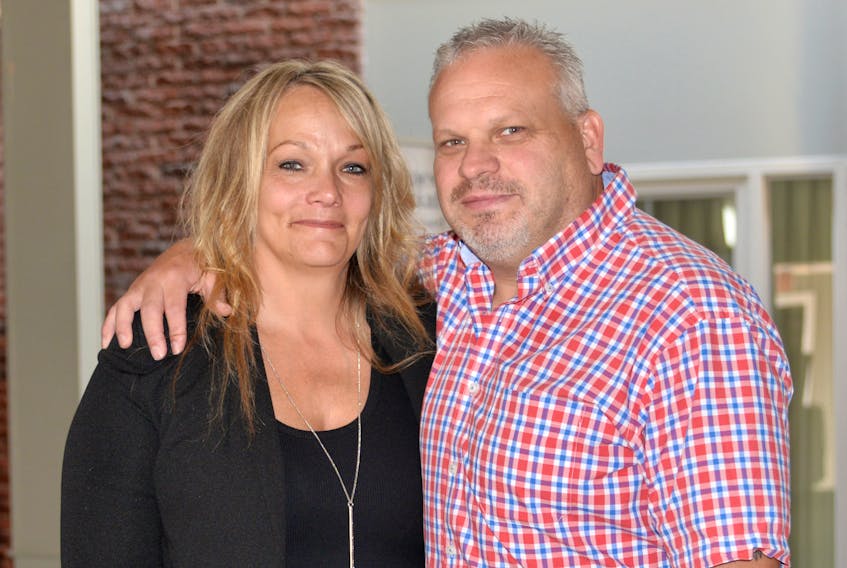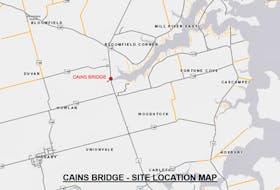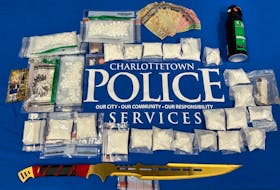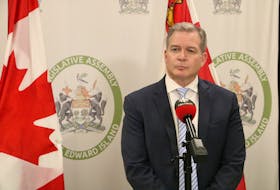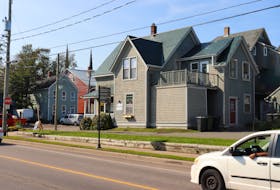As a paramedic for more than 20 years in Antigonish, N.S., John Garth MacDonald was trained to save people’s lives and keep them safe.
But MacDonald, 48, was never told how to keep his own mental health safe and deal with the daily trauma of the job.
Eventually, the job left MacDonald broken.
“I was to put up a shield of armor. I was not to show any sign of weakness. I was not to ask for help. I was not allowed to cry. I wasn’t allowed to show anger,” said MacDonald, one of the speakers during Saturday’s third annual Breaking Barriers mental health symposium in Charlottetown. “I would go home that night (or) that day, iron that uniform (and) go back to work the next day as if nothing happened.”
The symposium was hosted by the Paramedic Association of P.E.I. with other speakers including Cariboo-Prince George MP Todd Doherty and Joe Driscoll, who lost his 21-year-old son Jason in 2017 to suicide.
Ninety-five people registered for the event in Charlottetown.
During his career, MacDonald attended hundreds of traumatic motor vehicle crashes on Highway 104, which runs through Antigonish, and suicides that deeply affected him.
“Most of my suicides, their eyes were always open, staring back at me as if: ‘John Garth, what are you going to do for me? You need to help me.’”
In 2009, he started to drink heavily after work to cope and became withdrawn from his family. At night, would have nightmares of patients that died in his care.
Then, in December 2010, MacDonald and his partner got a call of a six-day-old baby that was non-responsive, and the mother needing medical attention.
The call turned out to be from one of MacDonald’s best friends. The father pleaded with MacDonald to save his baby.
At the end of the shift, MacDonald’s partner said he wasn’t coming back, and that this wasn’t what he signed up for. It was the third partner MacDonald lost as a result of PTSD.
MacDonald also was feeling the effects of PTSD with flashbacks, hallucinations, night terrors, anxiety, depression and hypervigilance.
MacDonald’s wife Michelle, a registered nurse for 24 years with a background in mental health services, also spoke at the symposium. Her presentation was called Beyond Shattered.
Michelle, 49, also recalled that night in 2010 when John responded to the non-responsive infant call.
John phoned her from the hospital crying.
That day led to his PTSD diagnosis.
“I knew that day had finally come – John was shattered,” she said.
She recounted the family’s struggle as John went through the physical injury and sickness of battling PTSD.
The family lost friends, and the children were constantly worried about their father.
After seeing several doctors with no success, he finally found a mental health professional in Halifax that helped him get on the road to recovery.
MacDonald’s story has a personal connection with Tara Vasil, the symposium’s organizer. Vasil’s father worked with MacDonald in Antigonish, and MacDonald was her first supervisor.
“When I heard John had PTSD, someone I looked up to for many years, it came as a shock to me,” she said.
Vasil was part of a ceremony on Saturday unveiling a Bill 102 Challenge Coin to recognize private member’s bill proclaimed on May 31. The new provincial legislation includes workplace stressors and PTSD as eligible for compensation under workers compensation legislation.

Vasil, also a P.E.I. paramedic, said more support and mental health resources, especially more psychologist and psychiatrists, are needed for first responders.
“Because right now there’s a huge wait list,” she said.
Amanda Brazil, director of programs and policy at the Canadian Mental Health Association (P.E.I. Division) and a volunteer firefighter with the Cross Roads Fire Department, added that “champions” are needed to change the stigma and culture around mental health and first-responders.
“There’s a lot more talk around it. There’s a lot more awareness, which is fine. But there’s not the literacy or the education going along with it,” she said. “People still don’t know what to do or who to talk to.”
Michelle MacDonald said the family is doing well these days and helps each other out to stay healthy.
“We know what we need to do to stay healthy,” she said.

Twitter.com/PEIGuardian

